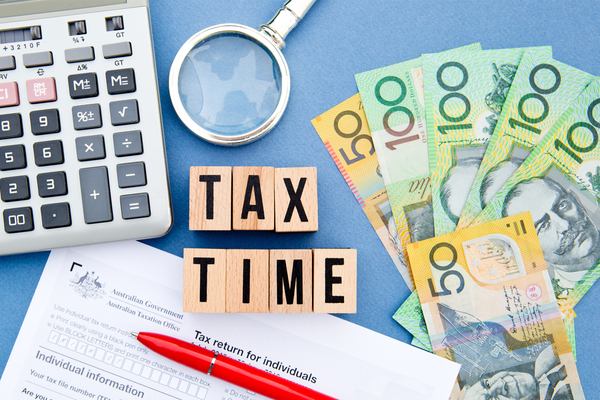It’s tax season – and with it comes the inevitable anxiety of getting everything together and lodging your return.
Of course, the level of difficulty and amount of time needed to prepare your taxes will vary according to the type of business you run and the number of employees you have. In practice, most small businesses hire a tax professional for advice and help in lodging their tax return. This is largely due to the level of complexity of the tax system that must be navigated to ensure businesses remain compliant with their tax obligations. But whether you choose to go it alone or work with an accountant to prepare your taxes, there are things that you can do to make the process easier.

Here are 3 steps any business can take to ensure they’re ready for tax time:
1) Prepare all documentation – and check your calendar
Ideally, you or your bookkeeper will have kept all your tax documents, payroll and accounting files well-organised throughout the year. But if not, now is the time to arrange everything. Having all the necessary paperwork in order will save your accountant time and therefore save you money. Plus, having organised records can help your accountant identify possible opportunities for deductions (more on that below) to save you even more money. Good record-keeping will also be of significant benefit in the event of your business ever being reviewed by the ATO.
If you haven’t already, schedule a time now to meet with your accountant and ask in advance which files you’ll need to bring to your appointment. Remember, if you’re lodging your return yourself as a sole trader, partnership or trust, your tax return is due by 31 October.
2) Explore possible deductions
You can claim deductions for most of the costs involved with running your business, including operating expenses such as office supplies, utilities and employee wages for the past financial year. Larger capital expenses such as buildings, equipment, computers and furniture are depreciated over a longer period of time. Business entities turning over less than $10 million per annum can generally claim tax deductions at a greater rate than larger businesses.
If you operate your business from your home and have a designated area set aside for running the business, you can claim deductions for part of your rent or mortgage, maintenance, as well as business phone, internet and utilities. You can usually deduct other expenses such as business related vehicles, travel and clothing, but it’s important to follow ATO guidelines on what is and isn’t permitted.
Business gifts to charities may also be eligible for deductions. If the gift was for $2 or more; the recipient has DGR (Deductible Gift Recipient) status; you have a written receipt; and you did not receive anything in exchange for the contribution, you can most likely claim it. For more information on these deductions, visit the ATO website page on gifts.
Knowing what is or isn’t a legitimate deduction can be complicated and some expenses are specifically excluded, such as travel to and from work. This is why you should keep careful records of any expenses you want to claim. It is also the reason why most small businesses hire a qualified tax professional who is familiar with the latest ATO rules and regulations and can help maximise your tax return and avoid any penalties.
3) If applicable, report through Single Touch Payroll
As of 1 July 2018, if you have 20 or more employees you are required to report payroll information through Single TouchPayroll unless you’ve been granted a deferral or an exemption by the ATO. This information is important when filing your taxes.
In short, the new measure requires you to file information on wages, salaries, super contributions and withholding information as it’s paid, which means you must have a compatible software in place that’s capable of automatic reporting. It’s possible that ALL employers may be required to use this system from 2019, so if you have questions about it, or if you have 20+ employees and are not using Single Touch Payroll, contact your accountant or speak to one of our advisors as soon as possible.
Have questions about lodging your return or getting help for your business taxes? Contact the professionals at Accru today.
